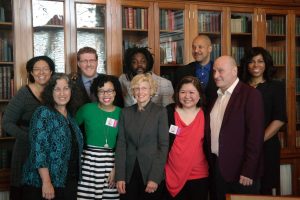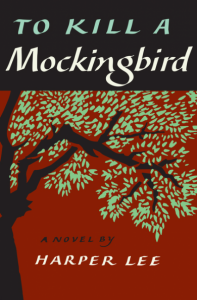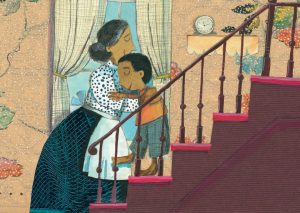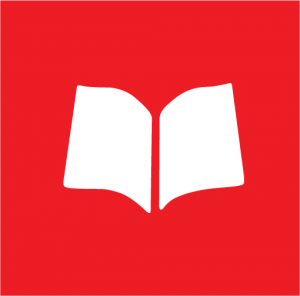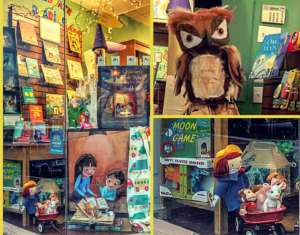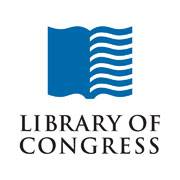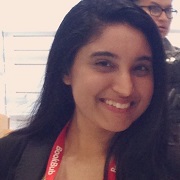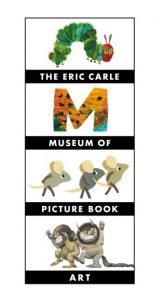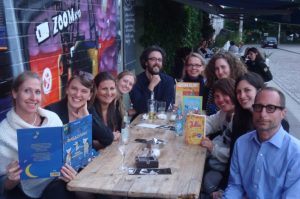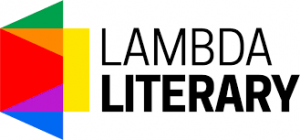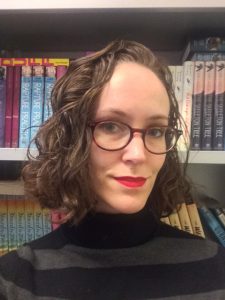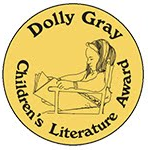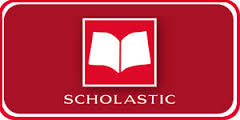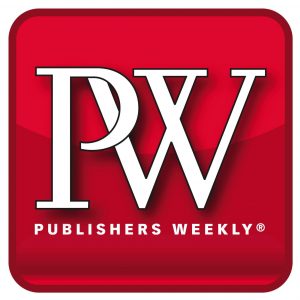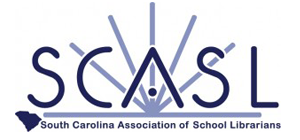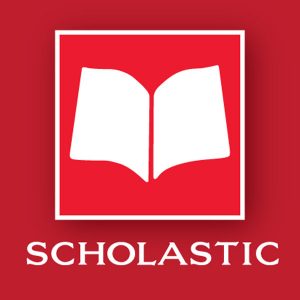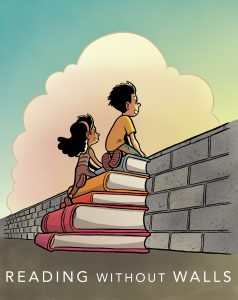Month: March 2016
-
The Inaugural Walter Awards
The winners of this years’ award were Jason Reynolds and Brendan Kiely, authors of All American Boys (Atheneum/Caitlyn Dlouhy Books). Honorees included Kekla Magoon, Ilyasah Shabazz, and Margarita Engle. What we really are looking …
-
HarperCollins To Offer To Kill a Mockingbird Price Promotion For Schools
New York, NY — HarperCollins Publishers today announced a special price promotion on Harper Lee’s To Kill a Mockingbird for U.S. accounts that sell directly to schools in the United States. …
-
#DrawingDiversity: ‘A Splash of Red’ illustrated by Melissa Sweet

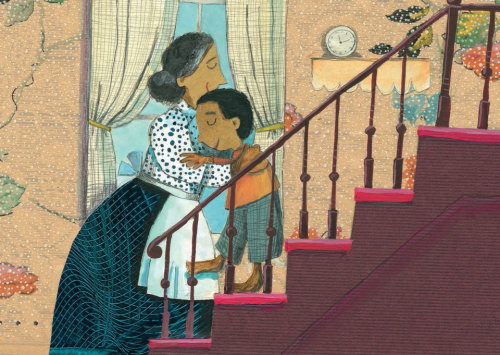
A Splash of Red: The Life and Art of Horace Pippin by Jen Bryant, illustrated by Melissa Sweet (Knopf Books for Young Readers/Random House, January 2013). All rights reserved. @randomhouse
-
Scholastic Leaps Into Summer Reading With 2016 Scholastic Summer Reading Challenge and Nationwide Reading Road Trip
NEW YORK, NY – Scholastic (NASDAQ: SCHL), the global children’s publishing, education and media company, is ramping up its Scholastic Summer Reading Challenge campaign to help kids take a “summer leap” into …
-
Bookstores: Enter the Children’s Book Week Display Contest and Win an Author Visit!
In celebration of the 97th annual Children’s Book Week (May 2-8, 2016), the Children’s Book Council and Every Child a Reader are teaming up with the ABC Children’s Group at the …
-
The Library of Congress Will Host Discussion/Workshops on Deaf Cultures
Washington, D.C. — The Center for the Book in the Library of Congress and the National Literary Society of the Deaf (NLSD) will co-sponsor an all-day discussion/workshop on “Telling America’s Stories …
-
How I Got into Publishing: Shifa Kapadwala
Contributed by Shifa Kapadwala, Publicity Assistant at Simon & Schuster Children’s Books
I’m from a South Asian immigrant family. For my traditional parents, a woman’s ultimate end goal should be getting married and taking care of a family. It’s no surprise that I don’t share this exclusive view, and I credit reading with helping me understand a culture I didn’t experience at home. I learned about things like the kinds of foods that were eaten for dinner or lunch; the different types of relationships between children and their parents; and social interactions and phrases more commonly used in mainstream Western culture. Though it was extremely hard to find Indian characters to relate to in the books I read throughout my academic career, it was literature that would help me understand the world around me.
It became more evident to me that I wanted to work with books—but the question was how. When I finally connected the fact that the little logos on the spine of my books stood for publishing houses and that there were actual people who worked to bring books out into the world, I decided I wanted to pursue publishing. Deciding was one thing, but pursuing was an arduous path.

When I shared my plans with my parents, there was… tension. Their notion of a family-oriented daughter and my career-oriented self caused many issues. When my dad found out I wanted a career, he only supported my being a lawyer and offered to pay for law school, but nothing else. I knew, ultimately, I would have to support myself financially. Though publishing doesn’t match a lawyer’s salary, I chose to strive for happiness and self-satisfaction.
My determination pulled me through college. The year after, I worked long hours as a writing tutor to earn the money I needed to put myself through the Columbia Publishing Course, a place that finally allowed me to immerse myself in the world I wanted. I hopped between internships, networked with people in the industry, researched imprints, buzzed books, kept up with the latest industry news , and applied to countless jobs, all while maintaining a part-time job to support myself.
I kept trying and eventually ended up as a publicity assistant at Simon & Schuster Children’s Books, where every day is a new adventure. Though my parents still wish I had gone the traditional route, they finally understand and respect—and maybe even appreciate, to some degree—the resilience and hard work it took for me to achieve my dreams. After all, they helped to instill these values in me. Although I don’t expect them to fully understand my career goals or the struggles of living in two different cultures with separate expectations, I’m certainly a lot happier working my way up in an industry I love.

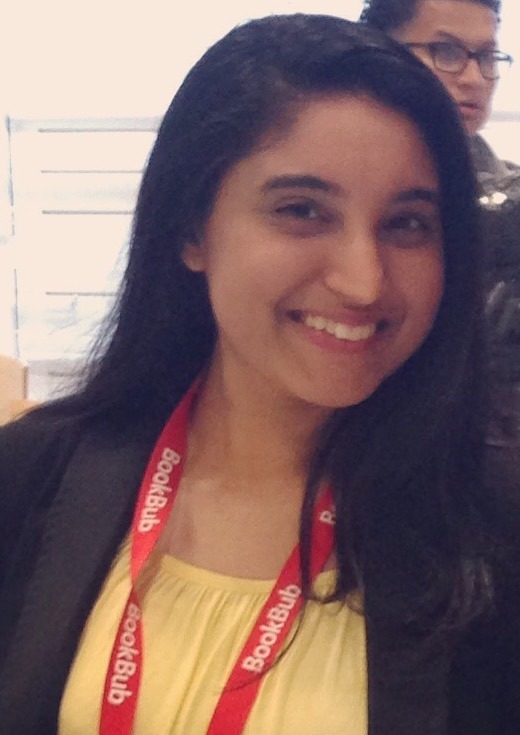
Shifa Kapadwala is currently a Publicity Assistant at Simon & Schuster Children’s Books. Born and raised in New York, she graduated from CUNY Queens College and later, the Columbia Publishing Course. When she’s not immersed in the lives of fictional characters, you can usually find her hunting for her next favorite coffee shop, or at bakeries devouring all the sweets. She tweets at @ShifaKaps111.
-
Announcing the Honorees for the 2016 Carle Honors
The Eric Carle Museum of Picture Book Art has announced the honorees for the 2016 Carle Honors. The Eleventh Annual Carle Honors will be awarded during a ceremony in New York City …
-
Apply Now for the 2016 Children’s Book Editors’ Trip to Germany
Participants will have the unique opportunity to meet with editors, publishers, and rights directors to learn about the German children’s book landscape. Thanks to sponsorship by the Frankfurt Book Fair and the …
-
28th Annual Lambda Literary Award Finalists Announced
This year’s finalists in the LGBT Children’s/Young Adult category are: About a Girl: A Novel, Sarah McCarry, St. Martin’s Griffin Anything Could Happen, Will Walton, Push Gay and Lesbian History …
-
ALA, AASL Support School Librarians in Houston Independent School District
CHICAGO, IL — The American Library Association (ALA) and American Association of School Librarians (AASL) are assisting local efforts in Houston to maintain and expand school librarian positions, as a …
-
“I Just Don’t Identify with the Character”
Contributed by Kate Sullivan, Senior Editor at Delacorte Press
These days, many working in the industry have heard the news and are on board with the mission: it’s time to diversify the book market. Publishing is an ecosystem, and every level needs to be committed to making changes if this mission is to succeed.
As an editor, I think a lot about my piece in this effort, and I’m avidly watching what other editors are doing to make it happen. Recently, some conversations I had on Twitter surrounding #ownvoices and #divpit made me reflect about blind spots that even the best intentioned ally or advocate editors have—including myself—and I want to share those revelations so that we can keep pushing the efforts forward.
I know many editors who are ready for change, and are embracing it. They’re calling to the heavens, to Twitter, lunching agents, asking and begging for more diverse submissions. And… honestly, we haven’t been super successful yet. At least, I know I’m not the only one discouraged by the limited progress. Some authors of color or marginalized voices are getting bigger and better book deals but not enough. I’m seeing more books that feature characters of different ethnicities or backgrounds and sexualities, and fantasies inspired by different cultures, but most of them aren’t written by diverse authors. It’s progress of a sort, but we need to push further and do better.
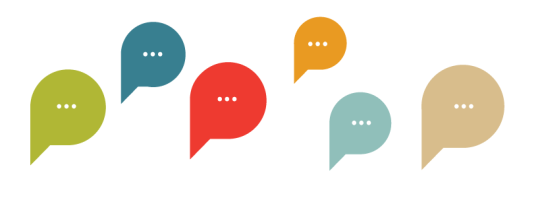
So if editors are advertising that we’re open and ready, why isn’t it working yet? First of all, if we’re acting within the system that is the problem, we’ll never fix it. We can’t use our usual methods of expanding our lists to cover more diverse subjects and authors because it’s the very method that has been failing those authors for so many years. It’s like emailing IT to tell them that your email is broken.
In regards to diverse authors, the common refrain I hear from frustrated editors is: “the manuscripts just aren’t being submitted to me.” Well, no. If marginalized people grew up without seeing themselves in books, why would they try to join traditional publishing? We must go to them, was the point that Sarah Hannah Gomez made on Twitter last month, when she challenged agents to find marginalized voices on social media and invite them to submit. Why can’t editors get out of their comfort zone, too, and find short fiction written by marginalized voices and encourage those authors; email MFA professors and ask to reach out to students; and get referrals from the few diverse authors we already have on our lists?
How are you even on Twitter & NOT seeing diverse voices? This is 1 of the few places we thrive. Like how bad are you at internet #subtweet
— sarah HANNAH gómez (@shgmclicious) February 6, 2016Another refrain I hear a lot from other white editors when talking about the struggle to get more diverse books: “if they were as good as the other stuff in my pile, of course I’d acquire them.” But is that fair? Are they as good, but you can’t see it because of a blind spot? Analyzing manuscripts for acquisition is sometimes an emotional or gut-based reaction, and now and then editors don’t have the time to plumb deeper than that. A common pass letter to an author might say “I didn’t connect to the voice,” or “I didn’t identify with the character.” If you’re a white editor reading this, pause for a second and think about how an African American or Native American might feel getting that pass letter. I imagine they probably think to themselves: “Of course you don’t connect to the character. You’re white. You’ve never been discriminated against like this.”
Another thing we can do to break the system that keeps out diverse authors is simply to check ourselves. I believe that “I didn’t connect to the character/voice” is unacceptable when it comes to diverse perspectives. If most editors are white and straight and middle or upper class, of course they won’t “identify” or “connect” with a diverse perspective. For those manuscripts, many of us should take a pledge to examine it in more detail before moving on.
- What is it about the character that you didn’t
connect with? If it’s at all race- or sexuality-based, might it be worth
reading on? If not, consider sharing your
specific analysis of what wasn’t working
with the author or agent.
- If you don’t believe the story and you’re passing
because the race is “too prominent”, take another look, and try to “suspend (white)
disbelief”.
- If your problem was in not connecting with the
voice, analyze it at the sentence level: Are you not connecting with the
writing, or is it that you’re not connecting with the race or sexuality of the
character? If the writing is weak, say why in your pass letter. If it’s good, keep
reading or share with a colleague for a second read, even if it’s not for you.
- Is it a problem with pacing, story structure, or use of perspective that is leading you to pass? All are reasons not to connect with character or story that have nothing to do with identification.
The fact is: marginalized voices have the deck stacked against them because white straight middle or upper class editors can’t identify with their perspective. The level of analysis required from the above questions really only takes an extra 15 minutes of commitment from editors, but that level of feedback can make all the difference for an author. So even if you’re passing, you might be giving them a leg up that they might not otherwise get. If you’re really committed to your alliance, I know of an editor who reads the entire manuscript any time she gets a submission from a diverse author, so that she can give it the best chance, or provide richer editorial comments.
In her article “Your Manuscript is Not a Good Fit”, Paula Lee Young points out that publishing is a cultural system pervaded by whiteness and, I would add, pervaded by a certain level of economic security. And in that system, many gatekeepers are going to have blind spots borne out of experience and privilege.
A glass ceiling would be an improvement on this feeling of running everywhere into invisible electrical fences shrugged off as paranoid delusions by those who aren’t shocked every time they attempt pass through them.
In other words, we’re all standing on the other side of that fence saying “I want more diverse books, I want to change the system” and not working outside of that very system. Gatekeepers and allies and advocates can actively open the door we didn’t even realize we’d left half-closed—we just need to think creatively to see around our blind spots. These two ideas—reaching out and thinking longer—are just the tip of the iceberg.

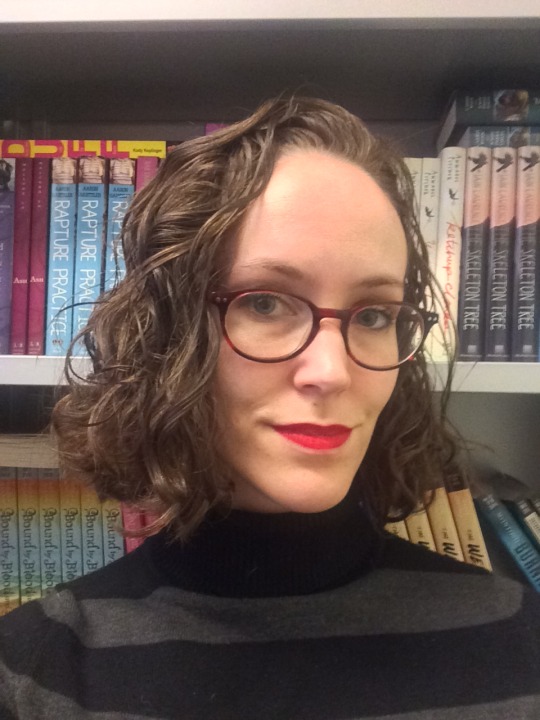
Kate Sullivan grew up in Belgium, the daughter of an air force colonel, where the tiny american library skipped straight from middle grade to adult fantasy and science fiction, which is where she fell in love with reading. She has worked on several NYT bestsellers, edited four Lambda finalists, and one book she edited has been turned into a film, and is currently a senior editor at Delacorte Press working on YA and middle grade.
- What is it about the character that you didn’t
connect with? If it’s at all race- or sexuality-based, might it be worth
reading on? If not, consider sharing your
specific analysis of what wasn’t working
with the author or agent.
-
Ninth Biennial Dolly Gray Award Winners Announced
December 23, 2015 — The Dolly Gray Children’s Literature Award was presented on January 20, 2016 at the Council for Exceptional Children’s Division on Autism and Developmental Disabilities (DADD) international conference in Waikiki …
-
Bedtime Story Prompts
Here are some ideas for generating nightly tales: The Quest: Create an India Jones-style narrative around an objective, an obstacle, and a resolution. Everyday Chaos: Spin a tale based on your everyday …
-
The New York Public Library’s Rose Main Reading to Reopen in Late Fall 2016
NEW YORK, NY — The New York Public Library’s historic Rose Main Reading Room and Bill Blass Catalog Room will reopen by late fall 2016 – several months ahead of the …
-
Michael Haggen Named Chief Academic Officer for Scholastic Education
New York, NY – March 15, 2016 – Scholastic (NASDAQ: SCHL), the global children’s publishing, education and media company, today announced the appointment of Michael Haggen as Chief Academic Officer …
-
Diversifying the Publishing Industry
While the We Need Diverse Books movement continues to gain momentum, the fact remains that publishing houses are staffed by predominantly white, middle class individuals. Low salaries, unpaid internships, and …
-
School Libraries Linked to Student Success
South Carolina is the first state to conduct a detailed study of this kind. In particular, seven qualities relating to school libraries were correlated with student achievement on tests for English language …
-
America’s Most Creative Teens Named as National 2016 Scholastic Art & Writing Awards Recipients
NEW YORK, NY –The nonprofit Alliance for Young Artists & Writers (the Alliance) today announced the national award recipients of the 2016 Scholastic Art & Writing Awards, the nation’s longest-running …
-
National Ambassador Gene Luen Yang’s Reading Without Walls Podcast: Episode 1 with Kate DiCamillo
Through his platform, “Reading Without Walls,” Yang hopes to inspire readers of all ages to pick up a book outside their comfort zone. See Yang’s inaugural interview with his predecessor …

